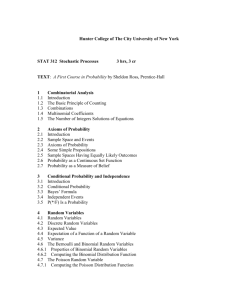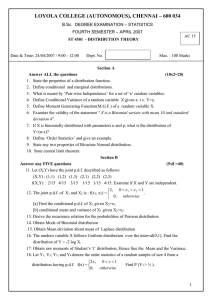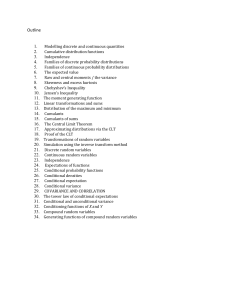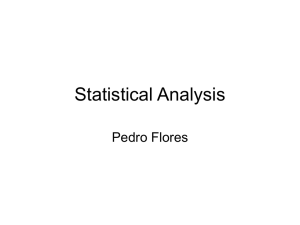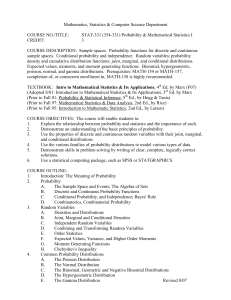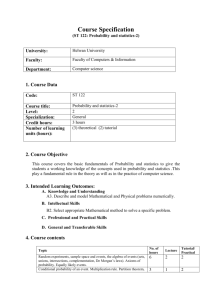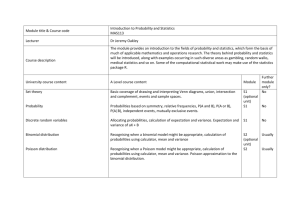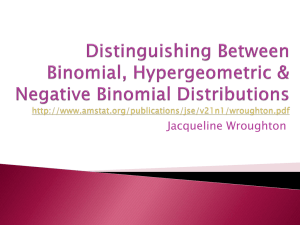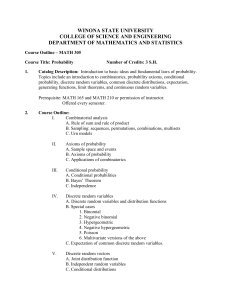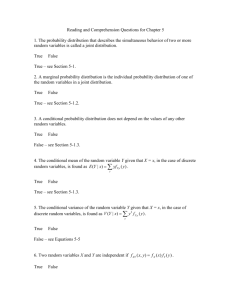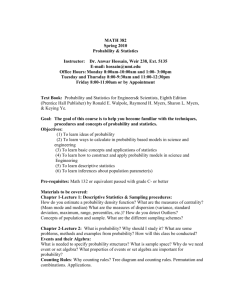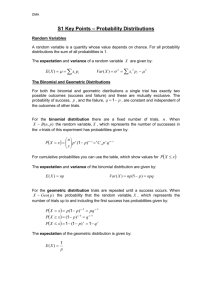Hunter College of The City University of New York STAT 311
advertisement
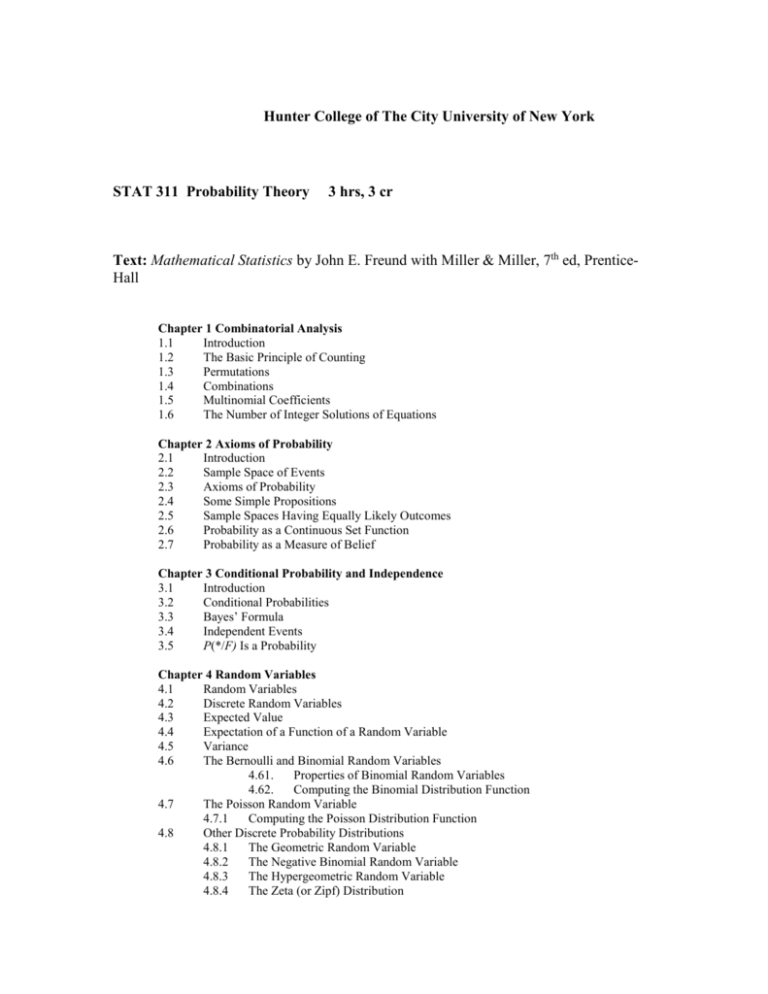
Hunter College of The City University of New York STAT 311 Probability Theory 3 hrs, 3 cr Text: Mathematical Statistics by John E. Freund with Miller & Miller, 7th ed, PrenticeHall Chapter 1 Combinatorial Analysis 1.1 Introduction 1.2 The Basic Principle of Counting 1.3 Permutations 1.4 Combinations 1.5 Multinomial Coefficients 1.6 The Number of Integer Solutions of Equations Chapter 2 Axioms of Probability 2.1 Introduction 2.2 Sample Space of Events 2.3 Axioms of Probability 2.4 Some Simple Propositions 2.5 Sample Spaces Having Equally Likely Outcomes 2.6 Probability as a Continuous Set Function 2.7 Probability as a Measure of Belief Chapter 3 Conditional Probability and Independence 3.1 Introduction 3.2 Conditional Probabilities 3.3 Bayes’ Formula 3.4 Independent Events 3.5 P(*/F) Is a Probability Chapter 4 Random Variables 4.1 Random Variables 4.2 Discrete Random Variables 4.3 Expected Value 4.4 Expectation of a Function of a Random Variable 4.5 Variance 4.6 The Bernoulli and Binomial Random Variables 4.61. Properties of Binomial Random Variables 4.62. Computing the Binomial Distribution Function 4.7 The Poisson Random Variable 4.7.1 Computing the Poisson Distribution Function 4.8 Other Discrete Probability Distributions 4.8.1 The Geometric Random Variable 4.8.2 The Negative Binomial Random Variable 4.8.3 The Hypergeometric Random Variable 4.8.4 The Zeta (or Zipf) Distribution 4.9 Properties of the Cumulative Distribution Function Chapter 5 Continuous Random Variables 5.1 Introduction 5.2 Expectation and Variance of Continuous Random Variables 5.3 The Uniform Random Variable 5.4 Normal Random Variables 5.4.1 The Normal Approximation to the Binomial Distribution 5.5 Exponential Random Variables 5.5.1 Hazard Rate Functions 5.6 Other Continuous Distributions 5.6.1 The Gamma Distribution 5.6.2 The Weibull Distribution 5.6.3 The Cauchy Distribution 5.6.4 The Beta Distribution 5.7 The Distribution of a Function of a Random Variable Chapter 6 Jointly Distributed Random Variables 6.1 Joint Distribution Functions 6.2 Independent Random Variables 6.3 Sums of Independent Random Variables 6.4 Conditional Distributions: Discrete Case 6.5 Conditional Distributions: Continuous Case 6.6 Order Statistics 6.7 Joint Probability Distribution of Functions of Random Variables 6.8 Exchange Random Variables Chapter 7 Properties of Expectations 7.1 Introduction 7.2 Expectations of Sums of Random Variables 7.2.1 Obtaining Bounds from Expectations via the Probabilistic Method 7.2.2 The Maximum-Minimums Identity 7.3 Moments of the Number of Events that Occur 7.4 Covariance, Variance of Sums, and Correlations 7.5 Conditional Expectation 7.5.1 Definitions 7.5.2 Computing Expectations by Conditioning 7.5.3 Computing Probabilities by Conditioning 7.5.4 Conditional Variance 7.6 7.7 7.8 7.9 Conditional Expectation and Prediction Moment Generating Functions 7.7.1 Joint Moment Generating Functions Additional Properties of Normal Random Variables 7.8.1 The Multivariate Normal Distribution 7.8.2 The Joint Distribution of the Sample Mean and Sample Variance General Definition of Expectation Chapter 8 Limit Theorems 8.1 Introduction 8.2 Chebyshev’s Inequality and the Weak Law of Large Numbers 8.3 The Central Limit Theorem 8.4 The Strong Law of Large Numbers 8.5 Other Inequalities 8.6 Bounding The Error Probability
